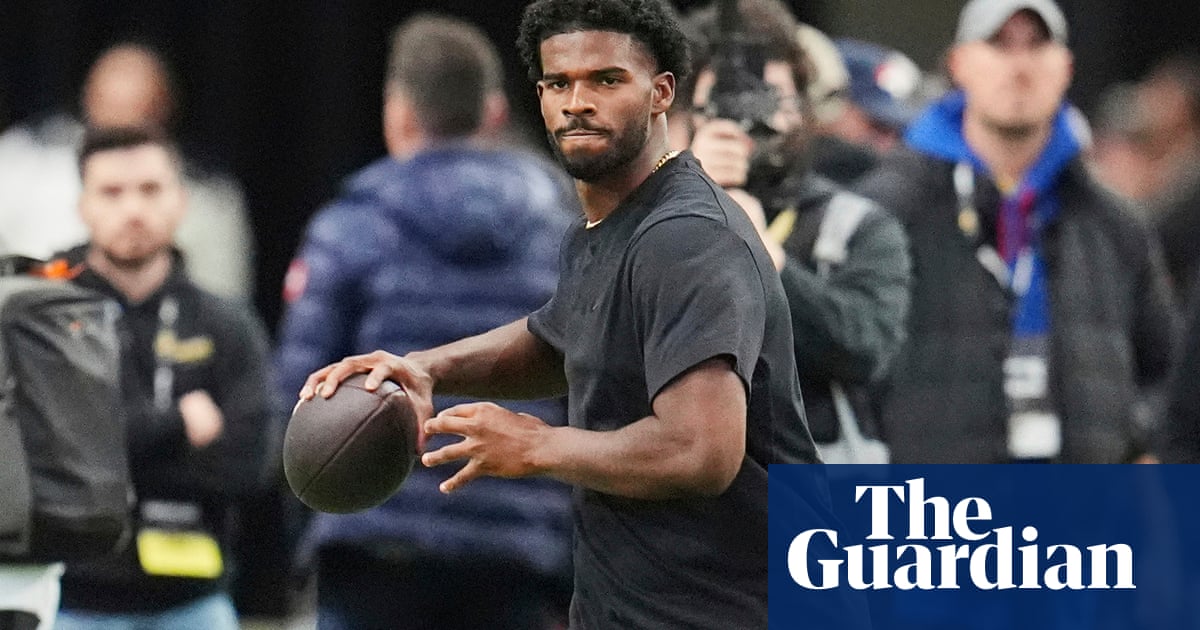One of the most extraordinary storylines in the history of the NFL draft came to a conclusion on Saturday as theCleveland Browns, finally, selected Shedeur Sanders with the 144th pick in the fifth round of this year’s draft.
Sanders entered the draft as the most famous current college player in the United States. Not only was he a star quarterback at Colorado, he was coached there by his father, Deion, one of the greatest football players of all time and one of US sports’ biggest personalities.
But aside from his celebrity, Sanders wasconsidered one of the best players in the draftat football’s most important position. While there were concerns over his size, arm strength and genuine arguments that his success at Colorado was partly down tohis brilliant No 1 receiver, Travis Hunter, most analystshad him as a first-round selection, or a second-round pick at worst. Mel Kiper Jr, the NFL’s most prominent draft analyst, ranked Sanders as the best quarterback available – superior even to Miami’s Cam Ward, who went No 1 overall.
But as Thursday’s first-round wore on, team after team passed on the 23-year-old. If that was a surprise then Friday’s second- and third-rounds were stunning as three quarterbacks considered inferior to Sanders – Tyler Shough, Jalen Milroe and Dillon Gabriel –were picked by teams with need at quarterback. That led to Sanders facing the third day of the draft, usually reserved for players deemed to have flaws or with limited skills. Kipersaid he was “disgusted” by Sanders’s slide.
The move from the Browns was somewhat of a surprise as they had already drafted a quarterback, Gabriel, in the third round. The Browns, however, are looking at quarterback options. Their starter, Deshaun Watson, will miss the entire 2025 season after rupturing his achilles. But even before his injury,Watson’s Browns career had been a disaster, and the Browns were looking to move on from him. Sanders will compete with Gabriel, Kenny Pickett and veteran Joe Flacco to take over Watson’s starting role.
Speculation had been mounting about why Sanders had slipped down the draft board. One executive from a team in need of a quarterback,told ESPN on Fridaythat there was “no smoking gun, but it’s not just football either”. The executive went on to say that Sanders’s talent did not make up for the attention and media circus that would accompany the quarterback.
But Jerry Jones, whose Dallas Cowboys have three-time Pro Bowler Dak Prescott at quarterback, dismissed anonymous league sourceswho had called Sanders “entitled”.
“I don’t know how many scouts have visited with me about the character of the Sanders group,” said Jones, who is close to the Sanders family, “but they should because it is absolutely up with the very best there’s ever been in sport.”
Now, after a bruising few days, Sanders has his chance to prove his case with the Browns. He may also take comfort in the story of another quarterback who went in the fifth round: the 199th pick of the 2000 draft, a Michigan prospect named Tom Brady.
